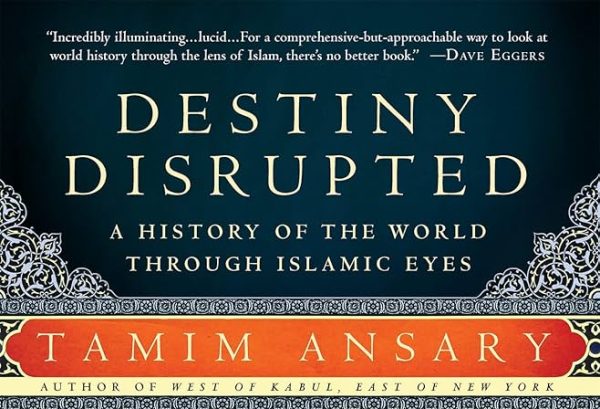Sex, incest and menstruation: cultural censorship
Language is our greatest tool. It’s how we communicate and express ourselves, but yet, we falter when we have to listen to or say sex, menstruation, incest, masturbation, vagina, penis and other similar words.
When I was in high school I was always involved in some sort of extracurricular. I was in the school orchestra, the leadership community and on a dance team. One day when I was backstage at a dance performance, I was trying to convince my friend to watch “Game of Thrones.”
I was doing my best to make the case that they’d want to watch the series because of the fantasy aspects, like the dragons and White Walkers, to help show them a world of wonder. However, before I could continue, they said in a hushed tone that they were uncomfortable with the theme and concept of incest that is woven throughout the storyline.
I was taken aback by their confession. My teenage mind at the time tried to defend one of my favorite shows by saying that incest, while immoral, was not a dirty concept. It’s well-ingrained in our country’s history and culture. It still exists in many areas of the world; whether you look at our species origin from a religious or evolutionary perspective, we all come from the same organisms.
This then sparked a debate about the origins of incest, and of course, this meant that we’d said the word “incest” a lot. One rule backstage was that if someone said something that interrupted the positive atmosphere, we had the right to ask that person to stop talking about it. As per this rule, one of my other friends, in a very hushed and frustrated tone, said that I was interrupting the atmosphere by saying the word “incest.”
Once again, I was surprised by this common mentality that words such as “incest” were considered dirty or scandalous.
This led me to consider other words that our culture deems to be vulgar or taboo. The perceived nature of some words like sex, menstruation, masturbation, penis and vagina grew more apparent to me as I tried talking to students on campus. Some students I attempted to talk to were hesitant or even backed out of interviews after hearing what words I was specifically asking about.
Yarely Contreras, a sophomore and liberal studies major at Chico State, said that thinking of saying these words “naturally feels uncomfortable” and that this mentality is “a very cultural thing” that doesn’t have much of an explanation behind why people are so uncomfortable saying these words.
Timothy Jay, a psychology professor at Massachusetts College of Liberal Arts, in a 2009 journal that outlines how and why taboo words are used so much, said, “At the institutional level, taboos on certain forms of speech arise from authorities that have the power to restrict speech and can act as arbiters of harmful speech.”
Jay further elaborates by writing that some examples of “arbiters” are courts of law, religious leaders, educators and mass-media managers. All of which play important roles in our society and culture.
The Federal Communication Commission, which monitors communications such as radio and television nationally and internationally, vaguely outlines how they define obscene, indecent and profane language. The FCC says that in order for content to be considered obscene — or language which isn’t protected by the First Amendment — that it must meet the standards of a “three-pronged test.”
The test says that content cannot encourage sexual interest, show or describe sexual conduct in an offensive manner and must “lack serious literacy, artistic, political or scientific value.”
Words such as sex, vagina and penis have scientific value. The words themselves and the context we use them in are what Luke Richardson, a senior and psychology (pre-med) major at Chico State, says are “straight up biology.”
As a result of this, they are used in TV shows and movies that don’t have a mature or restricted rating. However, we still hear these words sparingly on-screen and in our everyday lives.
Leah Schultz, a junior and biology major at Chico State said, “we are conditioned as children to regard those things [taboo words] as private, they are avoided to try to protect children.”
Our culture has embraced a more conservative ideology regarding sex and sexual organs as well as immoral acts such as incest because of historical and religious principles. Parents will be more inclined to want to protect their children from sexual themes that include the identification of the penis or vagina or the notion of sex or incest.
Jay expands on this idea in his journal about how children could possibly learn these words and their culturally “taboo” nature.
“Indeed, we learn not to use them when we are punished by caregivers,” Jay said. “Surprisingly, no one has clearly established how a child acquires word taboos.”
A child may be more likely to hear these terms in a variety of circumstances as media becomes more widely available to the general population in forms like portable devices and streaming. However, if a parent catches their child watching something that contains these words, social norms would suggest that they must attempt to direct the child away from it.
The more these words are stigmatized and restricted by caregivers, the more uncomfortable it is to speak them. Therefore, frequency in usage and exposure plays a part in assigning the idea of vulgarity to words like penis, vagina and sex.
In a 2016 journal, which outlines the impact of the frequency and intensity of taboo words in everyday language, Patricia Rosenburg, Sverker Sikström and Danilo Garcia, professors and researchers of religion and psychology, said, “Indeed, individual’s affectivity is linked to how frequent taboo words are used.”
The trio approaches the discomfort of speaking taboo words from the perspective that the more frequently we hear or say taboo words, the more comfortable we become with them. So, if these words are avoided all together, people are more likely to feel uncomfortable when in the presence of someone saying the words.
Ty Whittington-Brown, a senior and psychology student at Chico State, said that the comfort of saying these terms varies depending on the context and environment.
He said that if it was just an everyday conversation surrounding a topic regarding the words, he wouldn’t be uncomfortable saying them.
“In an uncomfortable environment I would use the words as comedic relief to open up a conversation,” Whittington-Brown said.
There are multiple reasons that our culture censors words like sex, menstruation, penis, vagina and so on. Despite the FCC’s “three-pronged test,” lawmakers’ debates on the restraints of the First Amendment and attempts by parents to shield their children, these words are still heard, learned and repeated.
If we do our best to define these words as body parts like Richardson said, and remove the negative stigma behind the usage of them, we could potentially break down the walls our culture builds around the appreciation of the human body and human nature.
We could help encourage the use of terms like sex, menstruation, incest, masturbation, penis and vagina in appropriate contexts at the proper time and place without subconsciously flinching or speaking in hushed tones.
Ariana Powell can be reached at [email protected].








